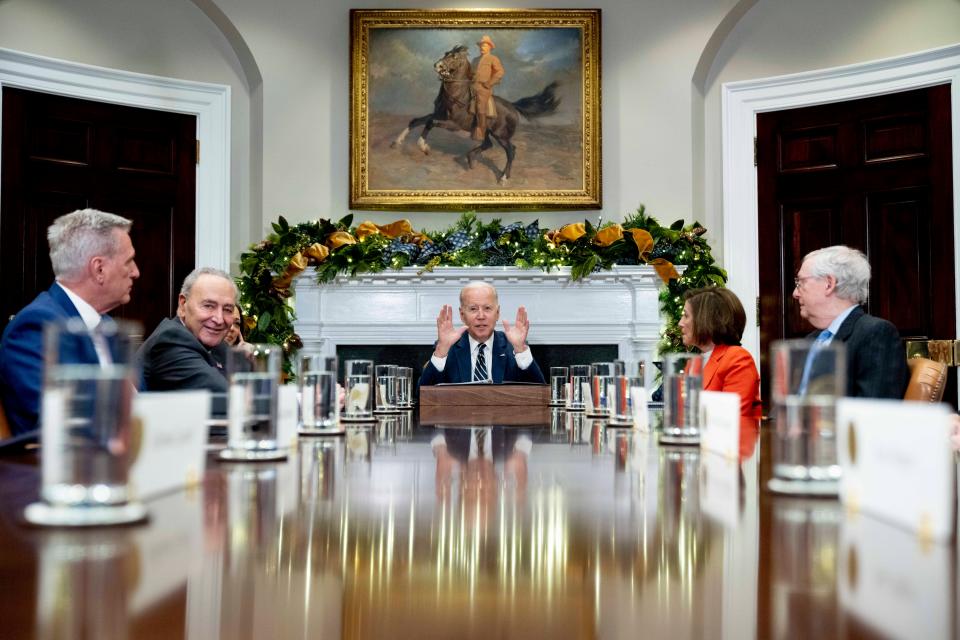Senate votes to avert freight rail strike that Biden warned would have triggered recession
A nationwide freight rail strike that President Joe Biden warned would have decimated the U.S. economy has been averted after the Senate voted overwhelmingly Thursday to impose a tentatively approved labor deal.
The vote was 80-15.
The legislation, which the House passed Wednesday, marked the first time in 30 years that Congress intervened to stop a rail strike. But Biden and bipartisan congressional leaders – reluctantly – said it was imperative the potentially crippling rail strike be prevented.
Biden told reporters Thursday morning a strike, which would have begun Dec. 9, would have triggered "a recession."

The bill adopts a tentative agreement reached in September between union leaders and freight operators. Four of the 12 unions representing rail workers have since rejected the deal, setting up the impending work stoppage.
The agreement includes a 24% pay increase over five years, $5,000 bonuses, voluntary assigned days off, but only one paid day off. An additional measure passed in the House would have provided rail workers with seven paid sick days.
More: Get political news, fast and to the point, delivered to your inbox.
But the Senate rejected the addition of paid sick time over the demands of progressives who said railroads could afford to treat their workers better.
The legislation needed 60 votes and Democrats, who control 50 seats, could only muster 52 votes despite the urging of Sen. Bernie Sanders, I-Vt., who noted that the rail industry is one of the few industries in America that do not offer universal paid sick leave.
"This is America. 2022. You don't treat people (this way) – especially people in the rail industry who are doing dangerous, difficult work," Sanders said on the Senate floor before the vote.

A separate vote on a GOP-sponsored amendment to delay the strike by 60 additional days so union leaders and railroad companies would have more time to negotiate also was defeated.
Senate passage is the final step before the bill heads to President Joe Biden's desk to be signed into law.
Biden urged Congress to pass legislation before the Dec. 9 deadline, warning that a shutdown of the system would cost the economy about $2 billion each day and immediately claim 750,000 jobs.
"What was negotiated was so much better than anything they ever had," Biden said of the tentative deal, noting that eight of the 12 unions signed approved it. He said he will "continue to fight" for paid leave for all American workers, which he unsuccessfully pushed in Congress last year.
"We're going to avoid the rail strike, keep the rails running, keep things moving, and I'm going to go back and we're going to get paid leave not just for rail workers, but for all workers."

Sanders led a group of Democratic senators in urging his colleagues to quickly pass the legislation with the additional paid sick days for rail workers.
The Democratic senators said rail workers, who get no paid sick time, deserve the benefit having kept U.S. commerce rumbling on the tracks during the COVID pandemic and supply chain shortages.
"During the first three quarters of this year, the rail industry made a record-breaking $21.2 billion in profits," they said in the statement. "Guaranteeing 7 paid sick days to rail workers would only cost the industry $321 million a year – less than 2 percent of their total profits. Please do not tell us that the rail industry cannot afford to guarantee paid sick days to their workers."
Contributing: Joey Garrison
This article originally appeared on USA TODAY: Senate votes to impose freight rail deal, preventing crippling strike

 money
money 